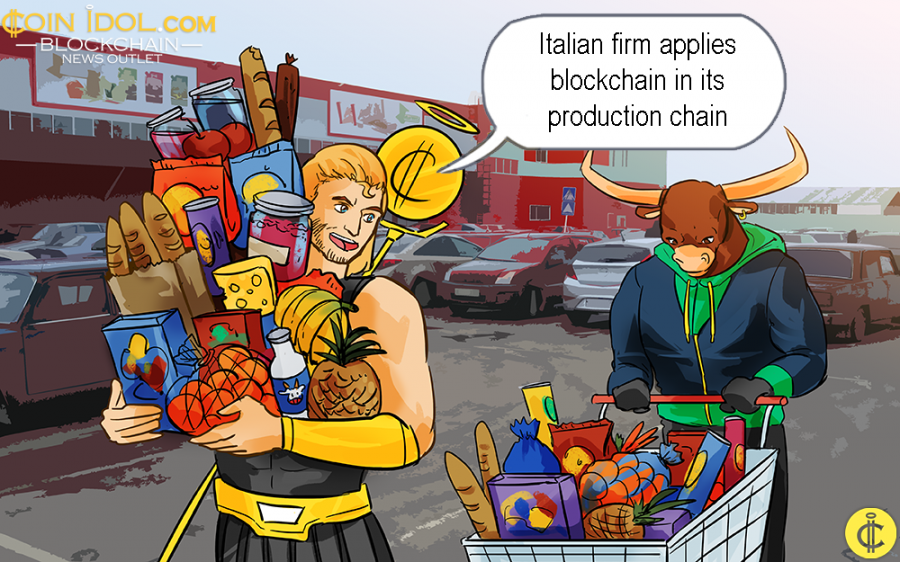Italian Firm Applies Blockchain in its Production Chain
Updated: Jul 21, 2020 at 21:04

The whole production chain of one of the market giants in the production of Bufala Campana PDO and derivatives mozzarella, will be visible to consumers through blockchain and a QR code which will enable all information to be fully accessed by scanning with smartphone.
An official web page will offer all the hints on the production chain beginning from the 45 licensed farms - that are located between the Volturno plain and the Agro Pontino - up to the processing and packaging phases.
Spinosa has properly equipped its products with the Blockchain Certificate which, through the same code and entering the production lot, allows the verification of the quality standards that the company complies with.
Blockchain in the Italian Dairy Industry
From chicken to citrus fruits, fresh milk to wine, all are now using blockchain technology, for instance, Ricci Curbastro cellars in Franciacorta, Ruffino and Torrevento, the first to have implemented the solution of the global certification body Dnv Gl, based on the public blockchain VeChainThor, to set the history of the product, from the vine to the bottle, and to guarantee its origin and specificity.
The blockchain is now becoming a progressively important "attribute" in the food industry and the good example is that of Carrefour, which in cooperation with IBM and EY, has rolled out several projects to provide consumers the opportunity to access all the information on the origin and processing means of a product, it endorses specifically how this technology can become an extensive standard for supply chain certification.
Another good example, among the first ever in the Italian dairy sector, of using the blockchain technology for the traceability of a supply chain leads to Spinosa Spa, a giant family business in Castel Volturno and one of the chief producers of buffalo mozzarella DOP and some of its derivatives (more than €24 million turnover in last year, of which 40% is the result of sales on the European and North American markets).
Blockchain Certification
The "Certificate Blockchain - Quality" label displays a QR code which, when scanned via the smartphone, enables online access to a landing page encompassing generic nutritional aspects and several tips for discerning the product, the comparative information to the production chain, starting from the 45 licensed farms up to the revolution and packaging phases, and a video story of the farms to virtually convey the user to the home of this excellence in the Italian food industry.
The first Spinosa mozzarellas with the blockchain label are already on the shelf in Esselunga stores in the 200g glass format.
Digitizing the Supply Chain
The knowledge of implementing blockchain (EY OpsChain Food Traceability), briefly, comes from the plea to undertake a 100 percent transparency trail, from breeding to table, to battle the counterfeiting of Made in Italy in the front line but also to promote and recognize the Spinosa brand on the global markets, where 3/4 consumers are more sensitive to the models of product validity. The food market is changing; consumers always want more information on what they eat.
Continuously connected to mozzarella, and always based on the distributed ledger technology (DLT), it is also the traceability project opened in recently at the Central Market of Rome by the startup of the restaurants Outlets and by the Bottega del Fritto in association with the University Sapienza plus University of Tor Vergata.
The innovative digitization of the supply chain is a tactical asset for Agrifood companies which target to create "value" of the product so as to upsurge brand awareness in the minds and eyes of the customer.
The Blockchain will be predominantly significant for foreign countries, where 74% of customers are highly sensitive to the concepts of goods authenticity.
The "brand reputation" of the firm (Spinosa) finds its foundation in the robust market orientation, in the endless security and safeguarding of customers.
Source text: https://it.coinidol.com/italiana-applica-blockchain/
News
News
Price
Coin expert
Price

(0 comments)